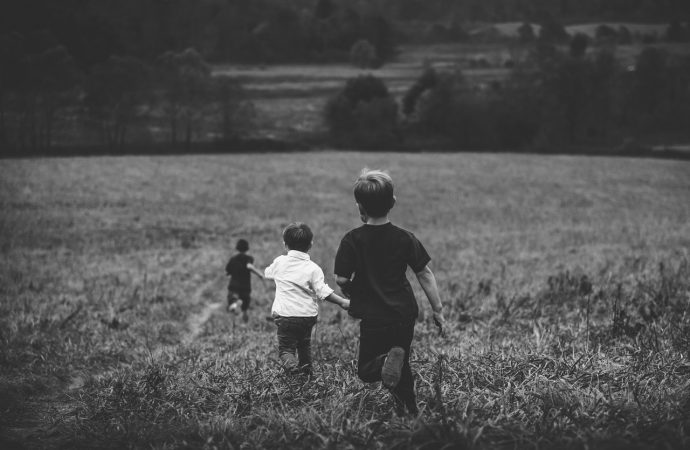Opposites attract, but birds of a feather flock together. So the sayings go. While some people still hold on to the folktale of dissimilarity knitting people together, decades of research have painted a different picture: the overwhelming number of our friends and acquaintances are similar to us1. The people we know resemble us in the most basic social characteristics, such as gender, age, race, and educational background. But they also resemble us in more complex attitudes, such as political views, cultural tastes, and humor. Most people live in a social bubble and there is a good chance that this is true for your friend group as well.
Although our friends tend to be similar, many people are unaware of this because they did not pick their friends for their similarity. Our social connections depend first and foremost on whom we get to meet2. And this depends on the social contexts we enter4 and the activities we engage in3. If you play a team sport, you will primarily meet people of your own gender (after all, many sports are segregated by gender). If you study at a university, you will primarily meet people who share your educational background.
Thus, having similar friends does not solely depend on whether you prefer similarity, and, in some cases, it might not depend on your preferences at all. In my Ph.D. project, I research the conditions and consequences of similarity in social relationships. In a large-scale Dutch survey, the majority of people interviewed report finding it “completely unimportant” whether their friends, colleagues, or neighbors are similar to them in all basic social dimensions (gender, age, migration background, education, and religion). Yet, we observe that the vast majority of them have social connections to people who are like them in these social dimensions.
The blessing and curse of similar friends
“So what’s the problem? I really like that my friends are similar to me”, a professor asked at a recent presentation of my Ph.D. project. Unsurprisingly, it is usually White, highly educated men who ask me this question. As it happens, they are also the group that benefits the most from their social contacts5. In the Western industrialized world, we want to hold on to the idea of meritocracy (= a system that rewards ability and talent). However, securing your most desired job, house or even marriage partner might well depend on whom you know.
Social scientists refer to this as social capital, the benefits we receive from our social relationships. We make use of our social capital whenever we ask for advice, information, or help from our social contacts. Both research and common sense tell us that social contacts are crucial in achieving our aims. Nowadays, “networking” is not just a catchphrase, but it is the realization – supported by scientific evidence – that creating valuable social connections is indispensable for succeeding in life.
The problem is that not everyone has the same chances to build up valuable social connections. People already start off from different places. And if those who are more privileged primarily know others who are also privileged, then the initial advantages of those groups become amplified. If a white, highly educated man primarily knows White, highly educated men, then his chances in life become disproportionately better. The flip side is that those who start off with a disadvantage have fewer chances to improve their social position via their social contacts.
How do we break the cycle?
Choosing our friends is among the most personal decision we can make. We all want to feel connected, secure and understood. To ask individual people to revise their friendship choices is not the takeaway message of this article. Individual solutions to a systemic problem won’t get us there. Instead, we can leverage the insight that our social connections are to a large degree circumstantial. Think of that school friend you used to play with because you lived in the same neighborhood, the university friend whom you spend time with because you live in the same dorm or the colleague you have lunch with every day because you share the same office.
If these meeting opportunities have the power to create social connections between similar people, even at the absence of any preferences for similarity, then they sure have the potential to tie together dissimilar people by creating more contact opportunities between them. And the good news is that it is already happening: women increasingly enter work positions traditionally occupied by men, both companies and educational institutions employ diversity officers, and policies require neighborhoods to mix residents of different income groups.
Contact between groups is the number one predictor for the reduction in prejudice6. Such efforts could cross the boundaries of what it means to be similar. And maybe then, our social connections will no longer be a source of inequality, but rather a source of opportunities, irrespective of where we started off from.
Marina Tulin is a Ph.D. student at the University of Amsterdam, where she studies the conditions and consequences of diversity in social networks. E-mail her at M.Tulin@uva.nl
References:
[1] McPherson, M., Smith-Lovin, L., & Cook, J. M. (2001). Birds of a feather: Homophily in social networks. Annual review of sociology, 27(1), 415-444.
[2] Blau, P. M., & Schwartz, J. E. (1982). Crosscutting Social Circles. Orlando, FL: Academic Press.
[3] Feld, S. L. (1981). The focused organization of social ties. American journal of sociology, 86(5), 1015-1035.
[4] Mollenhorst, G. W. (2009). Networks in contexts: How meeting opportunities affect personal relationships (Doctoral dissertation, University Utrecht).
[5] Lin, N. (2000). Inequality in Social Capital. Contemporary Sociology, 29(6), 785–795. https://doi.org/10.2307/2654086
[6] Pettigrew, T. F., & Tropp, L. R. (2006). A meta-analytic test of intergroup contact theory. Journal of personality and social psychology, 90(5), 751.



